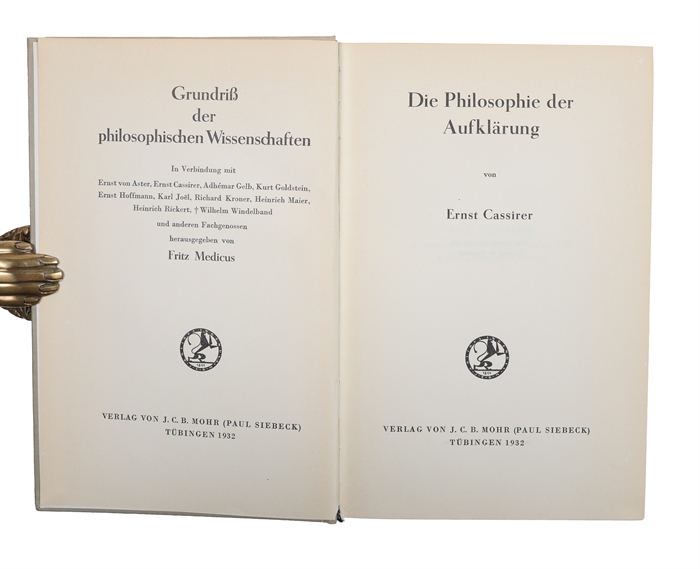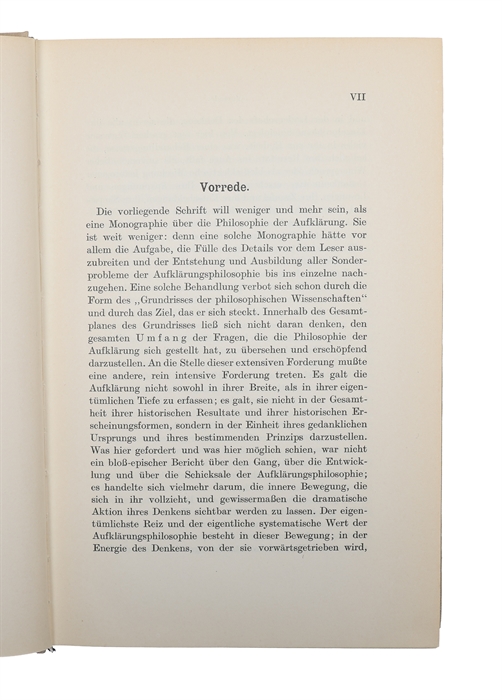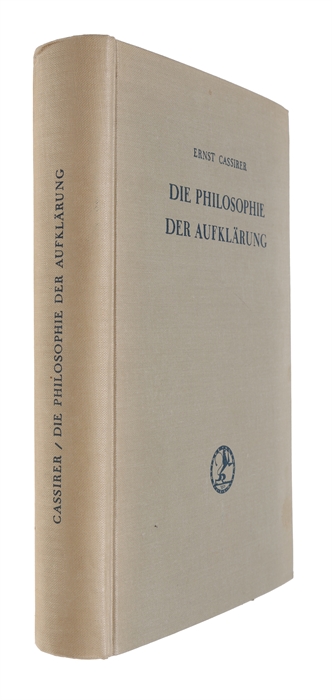AN IMPORTANT WORK IN THE HISTORY OF PHILOSOPHY
CASSIRER, ERNST.
Die Philsophie der Aufklärung.
Tübingen, J.C.B. Mohr, 1932.
8vo. Orig. full grey cloth. A nice, clean and solid copy. XVIII, 491 pp.
First edition of one of Cassirer's important works within the field of history of philosophy; the work was translated into English twenty years later under the title "Philosophy of the Enlightenment".
Ernst Cassirer occupies a unique place in twentieth century philosophy. Untraditionally his works are equally concentrated on foundational and epistemological issues in the philosophy of mathematics and natural science and on aesthetics, the philosophy of history, and other "cultural" issues in general.
No other German philosopher since the time of Kant has aimed so broadly and payed equal attention to the philosophy within both mathematical and natural sciences as well as the humanistic disciplines. He thus plays an otherwise non-existing mediating role in the 20th century between the different disciplines, as well as between analytic and continental philosophy, -two sorts of philosophy usually regarded as incompatible. - Cassirer was able to maintain fruitful philosophical relations with leading members of both traditions (e.g. with Moritz Schlick, the founder and guiding spirit of the Vienna Circle of logical empiricists, whose work in logic and the philosophy of science had a decisive influence on the development of philosophy in the United States, and on the other hand with Martin Heidegger, the dominating philosopher in continental Europe in the 20th century).
Ernst Cassirer was born in Breslau in Poland in 1874. He studied philosophy of law, germanistics, philosophy, science of history, and history of art at the University of Berlin, where he became Privatdozent in 1906. In 1919 he became Professor of Philosophy at the newly grounded University of Hamburg, but being a Jew he had to leave the country in the beginning of the thirties. After having been visiting professor in Oxford for a couple of years, he became visiting professor at the University of Götheborg in Sweden, where he four years later became a Swedish citizen. The following year (1940) he became Professor in Götheborg. He died in 1945.
Order-nr.: 34802



